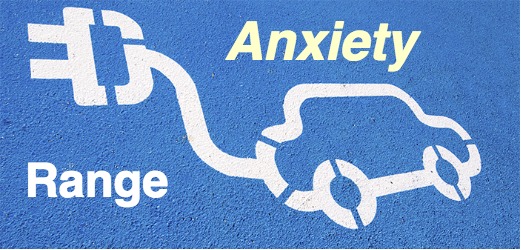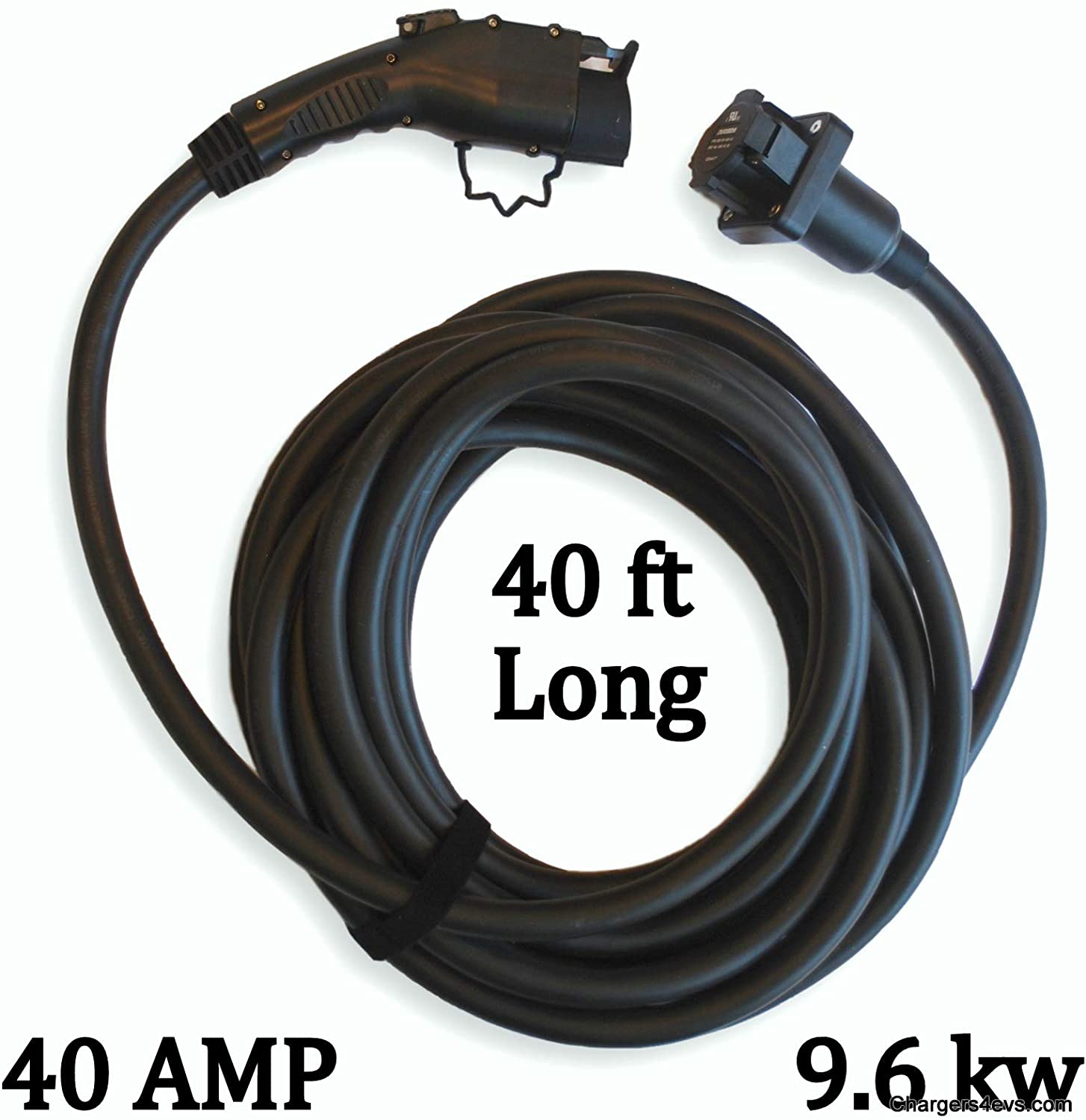Last Update: June 28, 2019

Supposedly an electric car owner is always getting stuck at the side of the road after running out of power. Electric car owners look silly, having paid a premium price, for a special kind of car, only to be stranded. That's the stereotype, anyway. The truth is rather different.
Don't gasoline car drivers get stuck on the side of the road? Isn't that why every gas car driver carries a gas can in the trunk? In other words, the problem is not limited to electric car owners.
What's really going on is an attempt to force limiting beliefs on us, to prevent purchases of electric vehicles.
Yes electric car drivers occasionally get stuck without power. Gasoline car owners also end up in the exact same situation. That's been true for decades. Somehow this is supposed to be a different or more dangerous risk for electric car drivers.
Gasoline car drivers learn quickly how to gauge gasoline vehicle driving range. Usually takes two or three times running out of gas to learn that lesson. It happens so often that folks rarely talk about it, other than an excuse for running late to a meeting.
Every vehicle driver must learn how to manage the energy stored in their vehicle and to act accordingly. It's the same problem in both cases:
- Every car has a limited driving range
- When driving beyond that limit you must stop and recharge, or refuel, the car
The difference between gasoline and electric cars is how frequently you stop for refueling. Oh, and that gasoline is a carcinogen, while electricity is not.
Range Anxiety Definition
Any car driver can end up stranded with no energy (fuel, electricity) in the car.
Obviously Range Anxiety is a thing. Gasoline car drivers express that fear in lots of ways. But it's recognized that after a couple weeks of driving an electric car most drivers start to know what to do, and where they can go.
Some hyped up the Range Anxiety fear. For example in the 2011-12 time frame, GM wanted us to buy the Chevy Volt, rather than the Nissan Leaf, telling us the Volt and its gasoline engine are the cure for range anxiety, while the Leaf would leave you stranded. Presumably the oil industry wants us to continue believing gasoline is the only way to go as well, and have worked to play up range anxiety fears.
Range Confidence is the solution to Range Anxiety (that and fast charging)
If it's accurate that Range Anxiety was purposely hyped to keep us using gasoline, that means it is a somewhat artificial fear. It helps to remember that FEAR is False Evidence Appearing Real.
One approach to solve the range anxiety problem is technological. Supposedly if electric cars just have enough driving range, everything will be fine. Some studies point to a driving range threshold, 150 miles or so, beyond which car owners no longer have range anxiety. Other research suggests that fast charging helps electric car owners feel confidence to drive more. While both of these are probably true, FEAR is a funny and irrational thing.
Let me suggest a different approach. Developing Range Confidence gives an electric car driver a new mind-set with which to evaporate Range Anxiety from their lives.
The solution for range anxiety may not be just technological, but to reeducate our collective beliefs. In almost every field the removal of a limiting belief frees us to do actions we previously thought impossible.
If Range Anxiety is the (irrational) fear of getting stuck on the side of the road, Range Confidence is the developed confidence coming from knowing the capabilities of your car and the charging stations in your region.
This book focuses on teaching Range Confidence. That is, the knowledge and wisdom to help you transform your beliefs about driving and fuel choices.
Beyond this inner transformation, there are the technological fixes that are required to have the freedom to drive electric wherever you wish.
How much electric car driving range is required to avoid range anxiety?
With gasoline vehicles we're used to having a 300+ mile driving range and a 5 minute recharge. Many demand that electric vehicles do the same before they'll buy. But electric vehicle behavior allows us to use them differently than we were forced to use gasoline cars.
- Electric vehicles can be charged at home making them more convenient than gasoline cars
- How often do we take the kind of long trips requiring the 300+ mile driving range and a 5 minute recharge combination?
Because electric cars charge at home, they can leave the house always knowing their car is fully charged. Gasoline car drivers don't have this luxury, and instead have in the back of their mind a bit of franticness wondering whether today is the day they'll run out of gasoline and get stuck.
The only scenario truly requiring 300+ mile driving range and a 5 minute recharge combination is the road trip. When road tripping we want to cover as much territory as quickly as possible, and that combination works well. For most of us road trips are taken once or twice a year.
Instead, most drivers travel 40 miles or less per day (the USA national average). Even an 80 mile range electric car, that's recharged every day at home, can handle 40 miles a day.
In other words the 300+ miles of range and 5 minute recharge isn't an absolute necessity. Just as obviously an 80 mile range is very inconvenient for long trips because you're having to stop every hour or so for charging. It has been demonstrated that a 150 mile range coupled with sub-1-hour recharge time is enough for folks to make long distance trips. And, affordable 200+ mile range electric cars are now on the market.
There will come a day when affordable electric cars with 300+ mile range will be commonplace. It's probably not that far in the future, either. But what about the 5 minute recharge?
Fast charging is the other leg of solving range anxiety as it relates to road trips
The mass market affordable 300 mile range electric car would only solve part of the road trip problem. The other part is a recharge time fast enough to satisfy the drivers. Maybe it will be 15 minutes rather than 5 minutes, surely 15 minutes is fast enough?
If 6 kiloWatt level 2 charging was the the only available choice, the 3-400 mile range would be useless since a full recharge would take nearly 20 hours. But at 150 kiloWatts or so 400 miles range could be recharged in about an hour.
Therefore autonomy similar to what gasoline car drivers enjoy requires both a long enough driving range, and fast charging.
Seattle to San Francisco electrically
To prove the point - with the right infrastructure, long range electric car trips are possible - let's consider a very difficult (at this time) trip.
The route between Seattle and San Francisco is over 800 miles long. It crosses multiple mountain ranges, and passes through many largely uninhabited (but beautiful) areas.
Multiple people have taken that trip (and further south) with electric cars. For a long time the biggest hurdle was the lack of charging infrastructure between the Oregon-California border and the Sacramento region. Folks making this trip made-do with stopping at RV parks or campgrounds. These are useful because RV owners frequently use NEMA 14-50 outlets. An electric car owner can carry a 6 kiloWatt charging station to charge at an RV park, and while that's slow for a road trip it is a lot faster than a 120 volt 1 kiloWatt charging rate..
North of the Oregon-California border, up to Seattle and Vancouver BC is the West Coast Electric Highway. It has fast charging stations spaced every 50 miles or so along the highways. South of that border was the problem. As of June 2019, there is now a string of fast charging stations from the Oregon border down to the Sacramento area.
Lesson If the public charging infrastructure lacks, by picking the right EVSE you can carry your own charging infrastructure.
In our modern world electricity is available pretty much anywhere. Unfortunately not all areas have charging stations, at this time. Driving through a No-Charging-Station-Region just means being inventive about finding power outlets, and carrying your own charging station. Over time the charger-less areas have to disappear, of course. See Can you drive an electric car away from charging network coverage areas?




